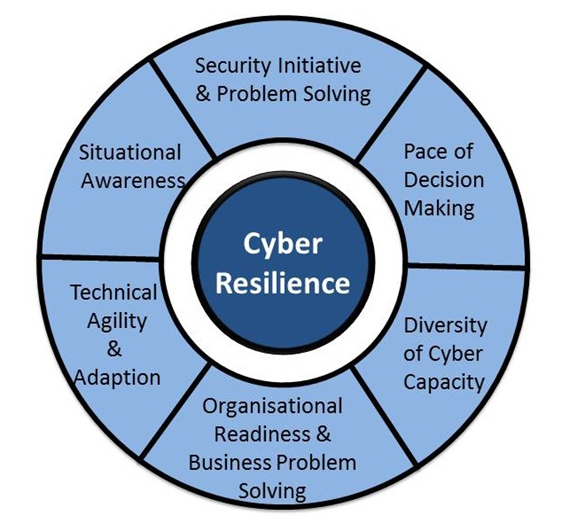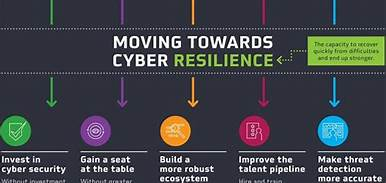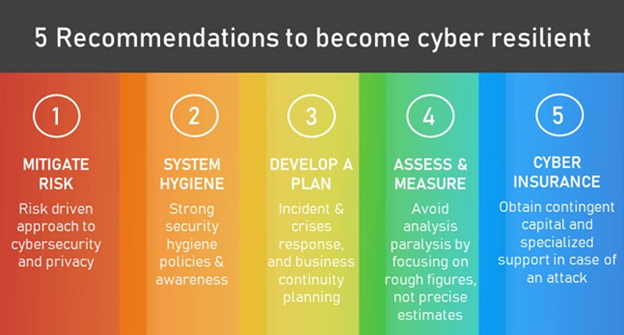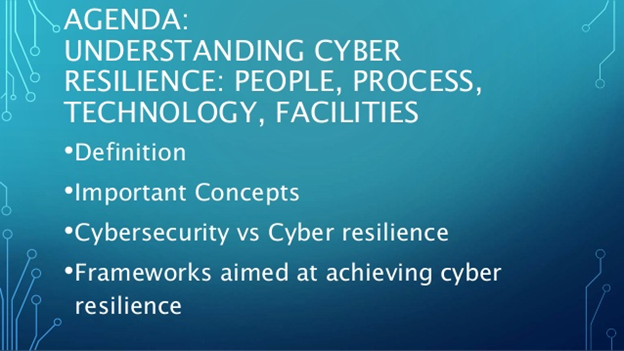Menu
- 130 King Street West, Suite 1800
- P.O. Box 427
- Toronto, ON, Canada M5X 1E3
- (416) 865-3392
- info@triparagon.com
Cyber resilience is an evolving perspective that is rapidly gaining recognition. The concept essentially brings the areas of information security, business continuity, and organizational resilience together.
Entities with potential need of cyber resilience abilities include, but are not limited to, IT systems, critical infrastructure, business processes, organizations, societies, and nation-states. Adverse cyber events are those that negatively impact the availability, integrity, or confidentiality of networked IT systems and associated information and services. These events may be intentional (e.g., cyber attack) or unintentional (e.g., failed software update) and caused by humans, nature, or a combination thereof.

The objective of cyber resilience is to maintain the entity’s ability to always deliver the intended outcome continuously This means doing so even when regular delivery mechanisms have failed, such as during a crisis or after a security breach. The concept also includes the ability to restore or recover regular delivery mechanisms after such events, as well as the ability to continuously change or modify these delivery mechanisms, if needed in the face of new risks.
Why does it Matter?
Think about what might happen to your business during a successful cyberattack scenario. Would your operations grind to a halt? How much money would you lose from the resulting downtime?
Todays cyberattacks are more complex and more dangerous than ever before. Cybersecurity experts are innovating all the time, but so are cybercriminals – and they are just as motivated to damage your business as you are to defend it.

By building cyber resilience, organizations can ensure that they are agile and ready to act fast, deploying smart tools that maximize their defensive resources in case of trouble.
A cyber-resilient organization has a variety of tools at its fingertips that can minimize business disruption in the event of a cyberattack. Build your cyber resilience by adding solutions with features that enable you to act fast to segment, block and stop damage.
These solutions include:
Cyber security consists of technologies, processes and measures that are designed to protect systems, networks, and data from cyber crimes. Effective cyber security reduces the risk of a cyber attack and protects entities, organisations, and individuals from the deliberate exploitation of systems, networks, and technologies. Cyber resilience looks at a wider scope where it comprises cyber security and business resilience. Cyber security is effective without compromising the usability of systems and there is a robust continuity business plan to resume operations if the cyber attack is successful.

Cyber resilience helps businesses to recognize that hackers have the advantage of innovative tools, element of surprise, target and can be successful in their attempt. This concept helps business to prepare, prevent, respond, and successfully recover to the intended secure state. This is a cultural shift as the organization sees security as a full-time job and embedded security best practices in day-to-day operations. In comparison to cyber security, cyber resilience requires the business to think differently and be more agile on handling attacks.

A cyber-resilient organization can adapt to known and unknown crises, threats, adversities, and challenges. The goal of cyber resiliency is to help an organization thrive in the face of adverse conditions (crisis, pandemic, financial volatility, etc.).
Tri-Paragon’s Senior Consultants are here to assist in organizing, planning, and managing your program to achieve the desired results within your budget and resource limitations.
For additional information on Tri-Paragon’s:
Call Roy at 1 (416) 865-3392 or email us at info@triparagon.com .
